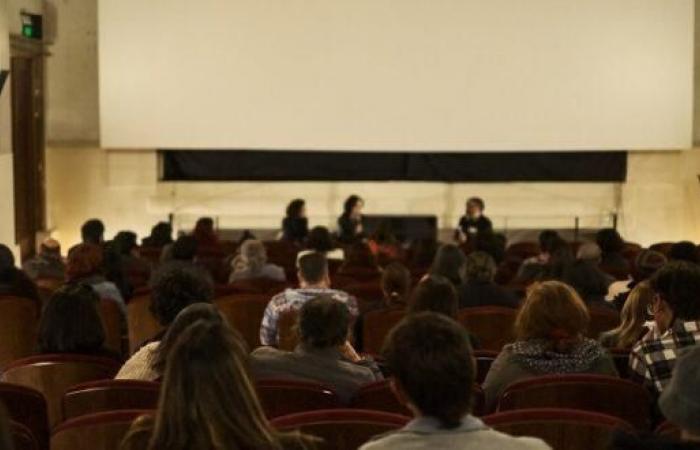INSOMNIA It has been shaping up for years to be something much broader than a traditional cinema. Its work in training audiences and film forums has turned it over time into a powerful cultural focus around cinema, which promotes critical reflection, learning and the enjoyment of cinema in a mix with other artistic and cultural disciplines. In this framework, the Film Appreciation Workshop is one of the emblematic projects that is now 12 years old and that this year has support from the Audiovisual Fund in the line of audience training of the Ministry of Cultures, Arts and Heritage.
The workshops will be held every Monday from July 1 to December 16 at 6:00 p.m., starting with the module “New Narratives of Latin American Cinema”. This module has 8 sessions in which the main references of realism in Latin American cinema since the early sixties will be reviewed, such as El Cinema Novo and Cine Marginal from Brazil; emblematic films from Colombia and Argentina and visits from national cinema leaders, such as editor Andrea Chignoli, who will be at INSOMNIA on Monday, July 8.
For Claudio Pereira, this session is particularly interesting since: “through the review of some milestones in Andrea Chignoli’s filmography, the evolution of fiction cinema in Chile and Latin America is exposed, in particular the narrative structure from editing. In addition, we will address contemporary directing works such as: “My brothers dream awake”, “The cow that sang a song towards the future”, “Death will come and it will have your eyes” and “Perrobomba”, where the archetypes disappear and give way to more abstract elements and expressions freer of inquiry.”
“The workshop “New Narratives of Latin American Cinema” proposes to observe different searches and expressions of contemporary cinema, especially where other ways of representing and narrating stories appear. From the furious and rebellious new cinemas of the sixties, authors who address complex and taboo subjects, to productions that try to make their way through the hegemonic narrative models. The workshop will have different experiences for our attendees in a very special way, such as 35 mm screenings, guest filmmakers, special functions and expository sessions of Latin American cinema. The first module, which runs from July 1 to August 26, is an invitation to learn about different and attractive expressions of Latin American cinema.”, explains Pereira.
On Monday, September 2, Module 2: Nonfiction and new subjectivities begins, in which the different types and areas of documentary film will be presented: ethnographic, cinema verité, participatory documentary, essay film. These contents will be supported through audiovisual material, theoretical references, historical contexts and bibliographic sources. In addition to contextualizing each case and reflecting with the attendees who will be able to ask questions and actively participate in each session.
Some references to discuss are “New realisms in peripheral cinemas”, such as the case of Iranian cinema in Abbas Kiarostami and Hana Makhmalbaf. Hybrid works of Portuguese cinema as is the case of directors Pedro Costa and Miguel Gomes. In addition, non-fiction cinema, first-person cinema and self-representation will be reviewed based on a series of references from Latin American filmmakers such as Albertina Carri, Nicolás Prividera, Andrés Di Tella (Argentina), Carmen Castillo (Chile) and Paz Encina (Paraguay).
The last module is titled “Fright and Tears: Popular Film Genres” and will take place between Monday, October 14 and Monday, December 16 at 6:00 p.m. In this cycle of workshops, the development of one of the most popular genres in the first half of the 20th century from major studios to Latin America will be analyzed, taking a critical look at the gender stereotypes and social structure expressed. Dissident and saturated languages will also be exhibited where mass culture and archetypes become protagonists of these forms that appeared, especially in the 70s and 80s.
Participation in the “Cinematographic: New Narratives of Latin American Cinema” Appreciation Workshop does not require prior registration and is free to the public. For complete information on the cycle, visit http://www.insomniacine.cl


